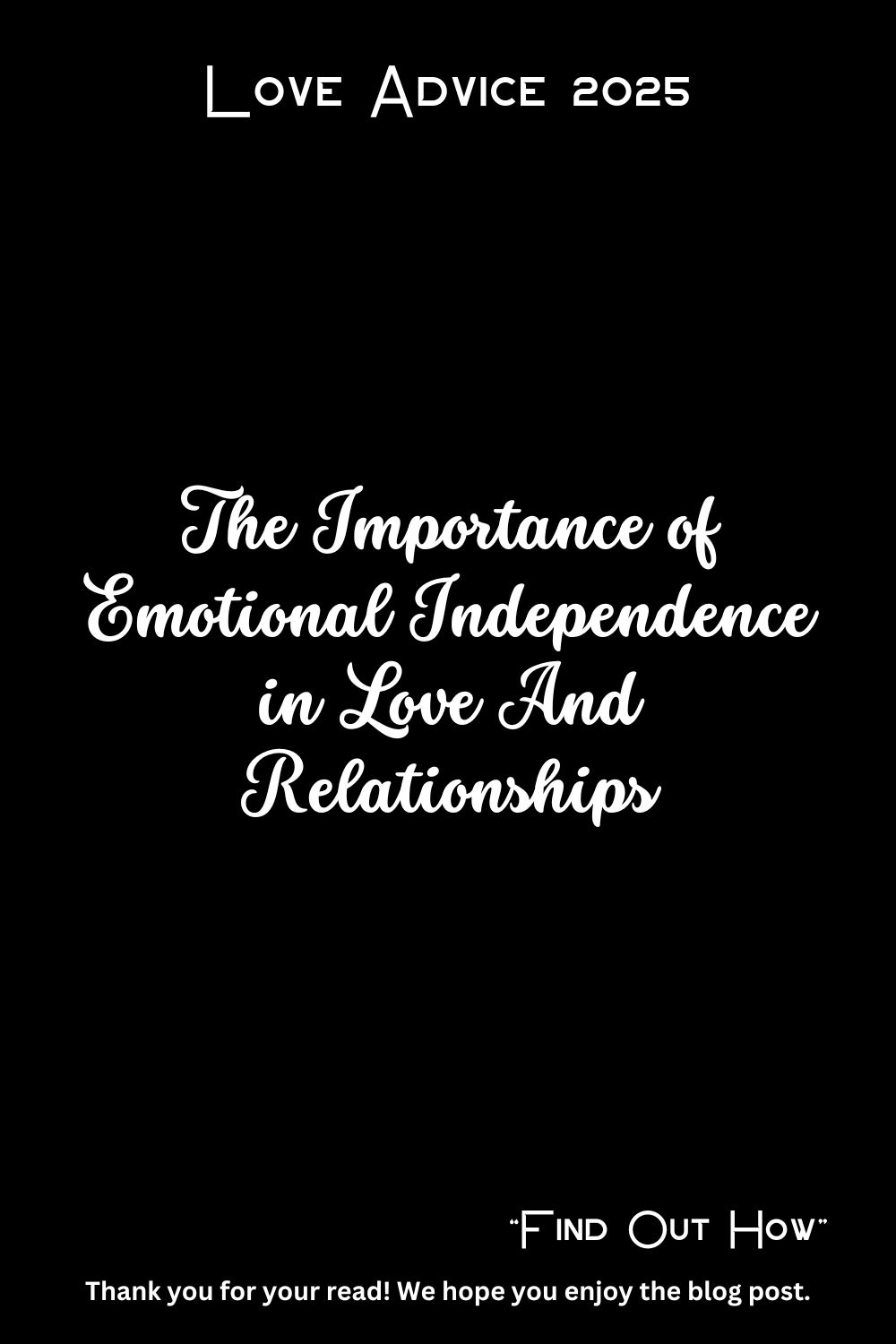Emotional independence is often misunderstood as emotional distance, but in reality, it is the foundation of a healthy and balanced relationship. It means that while you cherish your partner, you do not rely solely on them for your emotional well-being. Instead, you maintain a strong sense of self-worth and happiness, even when you’re apart. Here’s why emotional independence is essential for both you and your relationship:
1. Personal Growth and Self-Identity
Emotional independence allows you to grow as an individual while being in a relationship. It helps you maintain a sense of self and fosters self-awareness, which is crucial for creating a healthy partnership. When you can fully embrace who you are, you bring a stronger, more authentic version of yourself to the relationship.
2. Reduces Dependency and Pressure
One of the most significant benefits of emotional independence is that it removes unnecessary emotional dependency on your partner. When you rely on your partner to meet all your emotional needs, it creates pressure on both of you. Emotional independence helps prevent this by allowing each partner to be emotionally self-sufficient, reducing the risk of becoming overly clingy or controlling.
3. Fosters Healthy Boundaries
Emotional independence also encourages the setting of healthy boundaries. Instead of expecting your partner always to make you feel happy or secure, you understand that it’s your responsibility to manage your emotions. This, in turn, prevents emotional burnout and fosters respect between you and your partner, as you both have the space to pursue your passions and needs.
4. Enhances Communication and Conflict Resolution
When both partners are emotionally independent, they can approach conflict more calmly and maturely. Instead of reacting emotionally out of fear, insecurity, or neediness, you’re able to communicate your thoughts and feelings in a constructive way. This allows for healthier resolutions and prevents misunderstandings from escalating into major issues.
5. Strengthens the Relationship
Emotional independence does not mean emotional detachment—it means that while you are emotionally invested in the relationship, you are not completely dependent on it for your happiness. When both partners have the ability to find happiness and fulfillment within themselves, they can come together to enjoy and enrich the relationship without placing unrealistic expectations on each other.
Signs You May Need to Foster Emotional Independence
You often feel anxious or insecure when you’re not around your partner.
You rely on your partner to solve your emotional problems or boost your self-esteem.
You avoid doing things alone because you feel incomplete without your partner.
You feel resentful when your partner spends time with friends or alone.
How to Cultivate Emotional Independence
Self-awareness: Recognize your emotional triggers and take time to understand why you feel the way you do.
Invest in yourself: Develop hobbies, friendships, and interests outside the relationship.
Set boundaries: Know when to give yourself space and time to recharge emotionally.
Practice self-care: Take care of your physical, emotional, and mental health.
Communicate openly: Share your feelings and needs with your partner, without placing the responsibility for your happiness on them.
Emotional independence is not about distancing yourself or becoming emotionally unavailable—it’s about creating a strong, healthy foundation where both partners can thrive individually while coming together to build a deeper, more fulfilling connection. It strengthens the relationship by ensuring that both partners contribute to each other’s happiness without overwhelming or depending on one another for emotional fulfillment.





